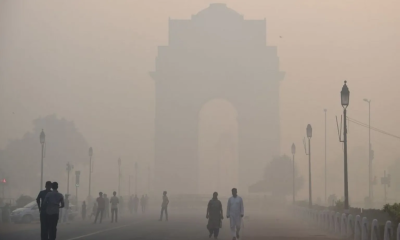A major new report published today finds that governments plan to produce around 110% more fossil fuels in 2030 than would be consistent with limiting warming to 1.5°C, and 69% more than would be consistent with 2°C, according to a press release of United Nations Environment Programme on Wednesday.
The 2023 Production Gap Report titled “Phasing down or phasing up? Top fossil fuel producers plan even more extraction despite climate promises” is produced by Stockholm Environment Institute (SEI), Climate Analytics, E3G, International Institute for Sustainable Development (IISD) and the UN Environment Programme (UNEP).
It assesses governments’ planned and projected production of coal, oil, and gas against global levels consistent with the Paris Agreement’s temperature goal.
This comes despite 151 national governments having pledged to achieve net-zero emissions and the latest forecasts which suggest global coal, oil, and gas demand will peak this decade, even without new policies.
When combined, government plans would lead to an increase in global coal production until 2030, and in global oil and gas production until at least 2050, creating an ever-widening fossil fuel production gap over time.
While 17 of the 20 countries featured have pledged to achieve net-zero emissions — and many have launched initiatives to cut emissions from fossil fuel production activities — none have committed to reducing coal, oil, and gas production in line with limiting warming to 1.5°C.
“Governments are literally doubling down on fossil fuel production; that spells double trouble for people and planet,” said UN Secretary-General António Guterres. “We cannot address climate catastrophe without tackling its root cause: fossil fuel dependence. COP28 must send a clear signal that the fossil fuel age is out of gas — that its end is inevitable. We need credible commitments to ramp up renewables, phase out fossil fuels, and boost energy efficiency while ensuring a just, equitable transition.”
Given the risks and uncertainties of carbon capture and storage and carbon dioxide removal, countries should aim for a near total phase-out of coal production and use by 2040, and a combined reduction in oil and gas production and use by three-quarters by 2050 from 2020 levels, at a minimum.
“Government’s plans to expand fossil fuel production are undermining the energy transition needed to achieve net-zero emissions, throwing humanity’s future into question,” said Inger Andersen, Executive Director of UNEP. “Powering economies with clean and efficient energy is the only way to end energy poverty and bring down emissions at the same time."
“Starting at COP28, nations must unite behind a managed and equitable phase-out of coal, oil, and gas — to ease the turbulence ahead and benefit every person on this planet,” she added.
The 2023 Production Gap Report provides newly expanded country profiles for 20 major fossil-fuel-producing countries: Australia, Brazil, Canada, China, Colombia, Germany, India, Indonesia, Kazakhstan, Kuwait, Mexico, Nigeria, Norway, Qatar, the Russian Federation, Saudi Arabia, South Africa, the United Arab Emirates, the United Kingdom of Great Britain and Northern Ireland, and the United States of America.
These profiles show that most of these governments continue to provide significant policy and financial support for fossil fuel production.
“We find that many governments are promoting fossil gas as an essential ‘transition’ fuel but with no apparent plans to transition away from it later,” says Ploy Achakulwisut, a lead author on the report and SEI scientist. “But science says we must start reducing global coal, oil, and gas production and use now — along with scaling up clean energy, reducing methane emissions from all sources, and other climate actions — to keep the 1.5°C goal alive.”









-20251226051932.jpeg)








-20260301064029.webp)





-20260228080513.webp)





-20260224075258.webp)






-20260225072312.webp)
